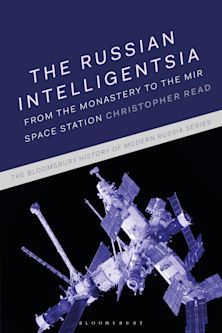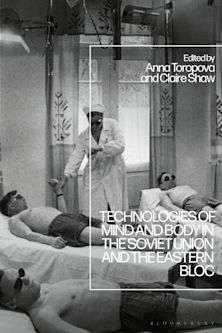- Home
- ACADEMIC
- History
- Russian History
- Wingless Desire in Modernist Russia
Wingless Desire in Modernist Russia
Envy and Authorship in the 1920s
Wingless Desire in Modernist Russia
Envy and Authorship in the 1920s
You must sign in to add this item to your wishlist. Please sign in or create an account
Description
In Wingless Desire in Modernist Russia, Yelena Zotova argues that the concept of envy underwent a peculiar transformation in the Russian Modernist prose of the 1920s due to a series of radical shifts in societal values, with each subsequent change thwarting Russia’s volatile axiological hierarchy. Industriousness and austerity, inferior to playful genius in Pushkin’s “Mozart and Salieri,” became virtues, while the intrinsic value of nonutilitarian art was officially nullified by the Bolshevik state.Consequently, a new literary type emerged, and envy, described as “wingless desire” by Russia’s chief poet Alexander Pushkin, obtained new ownership as the envied became the envier. Superimposing twentieth-century theories of envy onto Mikhail Bakhtin’s “Author and Hero in the Aesthetic Activity” (1923), Zotova proposes that Salieri’s envy could be the wingless embryo of the Bakhtinian authorship.
Table of Contents
A Note on Translation and Transliteration
Acknowledgments
List of Abbreviations
Introduction: The Hermeneutic Challenge of Envy
Chapter 1: When Author Envies Hero
Chapter 2: Wingless Desire: Mozart and Salieri as Author and Hero
Chapter 3: A Purgatory for the Hero: Iurii Olesha's Envy
Chapter 4: The Author in Hades: Konstantin Vaginov
Chapter 5: The Surplus of Vision in the Works of Alexander Grin
Afterword: Envy, Conscience, and Taste
Bibliography
About the Author
Product details
| Published | 10 Dec 2020 |
|---|---|
| Format | Ebook (PDF) |
| Edition | 1st |
| Extent | 296 |
| ISBN | 9781978776456 |
| Imprint | Lexington Books |
| Series | Crosscurrents: Russia's Literature in Context |
| Publisher | Bloomsbury Publishing |
About the contributors
Reviews
-
Wingless Desire is a trove of fresh insights for Bakhtin enthusiasts and adepts of Russian Modernism. A book for specialists, in order to appreciate the full scope of Zotova’s argument, it is helpful for the reader to have some familiarity with Bakhtin to begin with. That said, Zotova’s arguments are lucid, at times even striking, and parts of the analysis virtually crackle with brilliance. Zotova’s monograph is an accomplishment to envy.
The Russian Review
-
A timely, well-researched, and thought-provoking work on an understudied topic, Wingless Desire weaves together psychology and literary theory to analyze the theme of envy in Russian literature. Combining a broad scope with nuanced close readings of key texts, this book traces a line from Pushkin’s nineteenth-century classic, Mozart and Salieri, to the twenty-first-century events in the Crimea. Literary scholars will find the readings of the texts illuminating, while scholars of Russian culture and politics will find the connections drawn between literature and life eye-opening.
Elena Pedigo Clark, Wake Forest University
-
Tracing envy as an archetypal motif in nineteenth- through twentieth-century Russian fiction, Yelena Zotova juxtaposes diverse literary and philosophical approaches—namely, Rene Girard’s notion of the novel as modeling and overcoming mimetic desire and Bakhtin’s personalist claim that creative answerability affirms the ‘I’ by addressing the Other as subject, not an object of desire. Likewise, Zotova unexpectedly synthesizes Russian personalism with the neo-Kantian philosophical school. Envy as a literary motif helps the reader overcome its curse haunting us in real life. Zotova fully reveals fiction’s power to attain this catharsis.
Olga Meerson, Georgetown University

ONLINE RESOURCES
Bloomsbury Collections
This book is available on Bloomsbury Collections where your library has access.



































